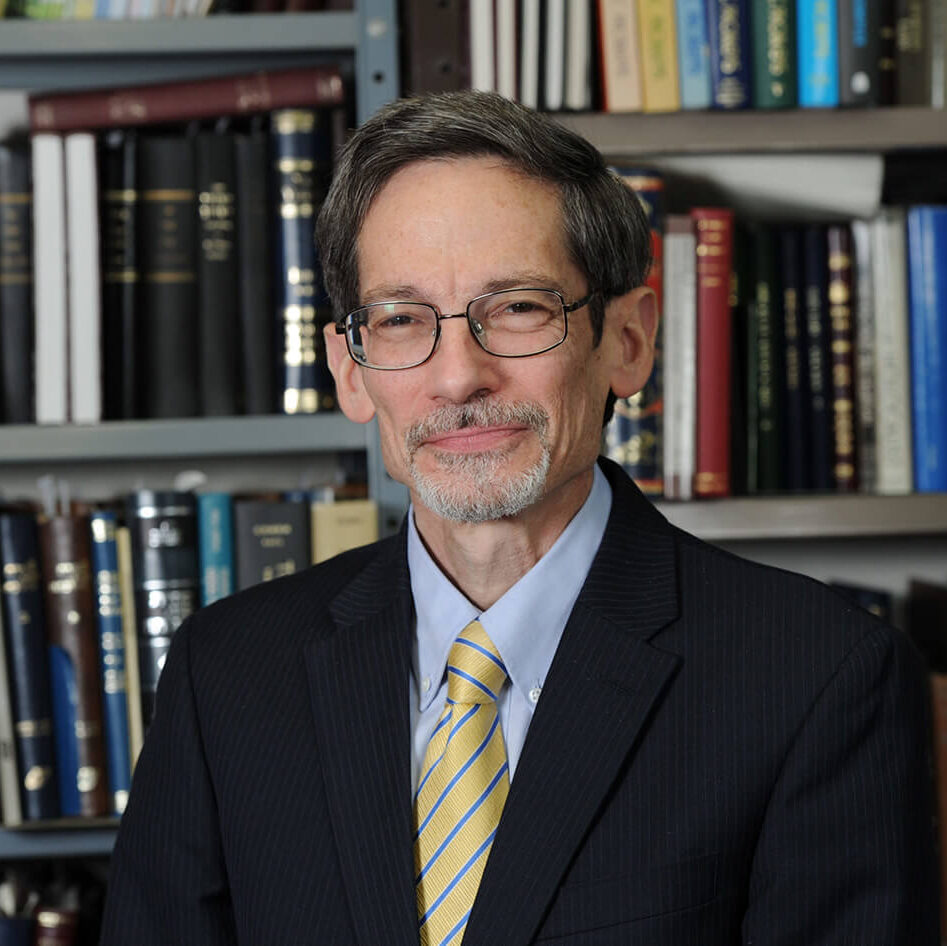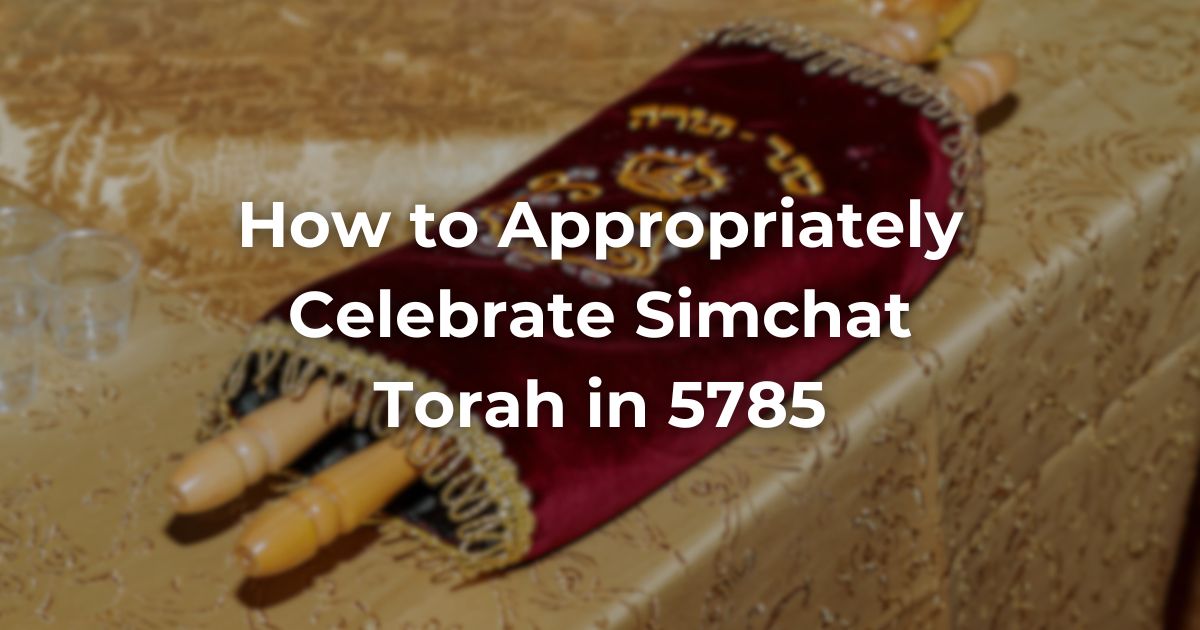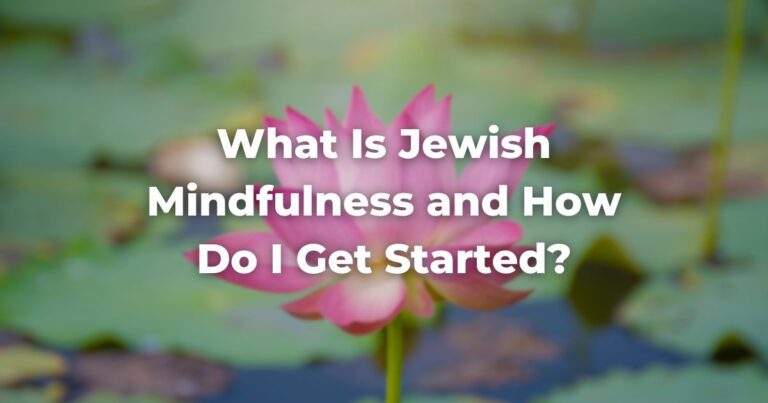Question:
From Dr. Perry Sinclair and others: On Simchat TorahRefers to the first five books of the Hebrew Bible, the Tanakh, also called the Five Books of Moses, Pentateuch or the Hebrew equivalent, Humash. This is also called the Written Torah. The term may also refer to teachings that expound on Jewish tradition. Read more 5784, October 7th, 2023, we experienced one of the greatest tragedies the history of the State of Israel. Since then, 400 soldiers and civilians have been killed, there are still 101 hostages held in Gaza, and the war continues in the South and the North. Considering all of this, how do we appropriately celebrate Simchat Torah in 5785?
Answer:
Indeed, this is a difficult dilemma. One on hand, we are commanded by the Torah to be joyous on Sukkot (Lev. 23:40, Deut. 16:14-15), and on Shavuot (Deut, 16:11). From these verses, the sages taught us that there is a positive commandment: to be joyous on holidays (Pesachim 109a, Mishneh Torah, The Laws of Yom Tov 6:17-18, Mishneh Torah, The Book of Mitzvot, Positive Mitzvot 54, Sefer HaChinukh 488, Divrei Dovid Torah Mossad 451)
In addition to this, “Simchat Torah” is meant to be like its name, a holiday of song, dance, and of the highest joy as we celebrate the completion of the reading of the Torah. How are we to bridge this gap? (I.e., the tragedies and the joys simultaneously, EJ editors.)
A means of resolution can be found in a famous baraita appearing in Bava Batra 60b, which I quote without all the Talmudic back and forth.
The Sages taught: When the Second Temple was destroyed, there was an increase in ascetics among the Jews; they did not eat meat or drink wine.
Rabbi Yehoshua joined them (to discuss their practice) and said to them: ‘My children, why do you not eat meat nor drink wine?’ They said to him: Shall we eat meat, from which (offerings) are sacrificed upon the altar, and now (the altar) has ceased (to exist)? Shall we drink wine, which is poured (as a libation) upon the altar, and now (the altar) has ceased (to exist)?
Rabbi Yehoshua said to them: If so, we will not eat bread either, since the meal-offerings that were offered upon the altar have ceased. They replied: You are correct. It is possible to subsist with produce. He said to them: We will not eat produce either, since the bringing of the first fruits have ceased. They replied: You are correct. We will no longer eat the produce of the seven species from which the first fruits were brought, as it is possible to subsist with other produce. He said to them: If so, we will not drink water, since the water libation has ceased. They were silent as they realized that they could not survive without water.
Rabbi Yehoshua said to them: My children, come, and I will tell you how we should act. To not mourn at all is impossible, as the decree was already issued and the Temple has been destroyed. But to mourn excessively as you are doing is also impossible, as the Sages do not issue a decree upon the public unless a majority of the public is able to abide by it, …
Rabbi Yehoshua continues: Rather, this is what the Sages said: A person may plaster his house with plaster, but he must leave over a small amount in it without plaster to remember the destruction of the Temple…
Rabbi Yehoshua continues: The Sages said that a person may prepare all that he needs for a meal, but he must leave out a small item to remember the destruction of the Temple…
Rabbi Yehoshua continues: The Sages said that a woman may engage in all of her cosmetic treatments, but she must leave out a small matter to remember the destruction of the Temple…
The baraita continues: And anyone who mourns for the destruction of Jerusalem will merit and see its joy, as it is stated: “Rejoice with Jerusalem, and be glad with her, all that love her; rejoice for joy with her, all that mourn for her.” (Isaiah 66:10).
This is how the Rambam (Mishneh Torah, The Laws of Fasts 5:12-13), the Tur, and the Shulkhan Arukh (OH 560:1-2), rule and this is the common practice.
That is, we need to find a middle way between the regular joy of Simchat Torah and the necessary mourning of the terrible tragedy of Simchat Torah 5784.
The majority of synagogues worldwide are already accustomed to saying Mi Sheberach for the Hostages and/or chapters of Psalms each day, including Shabbat and holidays.
I want to suggest three additional actions that are worthwhile for us to do on Simchat Torah 5785, and I want to explain each proposal according to halakhah. We will begin with the easiest and move to the heaviest, from the simplest suggestion to the most surprising for a person who is not expert in the history of minhag (customs) and halakhah (Jewish law).
These are the three proposals:
1. Add a Yizkor for the Victims on Simchat Torah 5784 and those killed since in the War.
Yizkor is a custom that developed in Ashkenaz at the end of the 11th century following the First Crusade and gradually spread to Italy and Eastern Europe. People would “mention souls,” among other times, on Shabbat and/or Yom Kippur and/or the three pilgrimage festivals, each place according to its custom.
But the question arises: How could they recite Yizkor on the pilgrimage festivals if we are obligated to rejoice during the holidays? Indeed, some Acharonim asked this question and offered various explanations. But what is interesting is that none of the important halachic authorities who dealt with this issue over hundreds of years asked this question! They saw no contradiction between reciting Yizkor for the deceased and the commandment to “rejoice on your festival.”
Therefore, since Jews have been reciting Yizkor on the three pilgrimage festivals from the 13th century until today, and since the majority of the Jewish people from all streams (except for the haredim who oppose any innovation in Judaism) recite Yizkor for Holocaust victims, soldiers, and civilians who have died since the establishment of the State of Israel, there is no halachic issue with adding Yizkor for those who were murdered on Simchat Torah 5784 and for those who have died in the war until today.
2. Reduce the joy of one Hakafah, where we will not sing nor dance, alternatively, sing quiet songs.
It seems that we are obligated to dance seven hakafot (processions) on Simchat Torah in the evening and morning. However, anyone who studies Abraham Yaari’s fundamental book, “The History of Simchat Torah,” Jerusalem, 1964, will realize that from the period of the Geonim (6th-11th centuries) throught the thousand years until the time of Rabbi Isaac Luria in Tzfat (d. 1572), there were no seven hakafot with songs and dances on Simchat Torah.
For example, in France, Ashkenaz (Germany), Provence, and Italy from the 11th to the 15th centuries, it was customary in the morning (of Simchat Torah) to recite “Ata Horeita” and many other verses. They would take all the Torah scrolls out of the ark, sing “Ana Hashem Hoshia Na, Elohei Haruchot,” and all the while “march slowly,” and then place three Torah scrolls on the bimah for the Torah reading, returning the rest to the ark. In the customs of the Maharam of Rotenburg around the year 1300, we find mentioned for the first time that a similar ceremony was also held at night. In all these descriptions, there is no mention of seven hakafot or of singing and dancing.
The seven hakafot are an innovation of Rabbi Isaac Luria, the Ari, who lived in Tzfat between 1570 and 1572. His student, Rabbi Chaim Vital, reports that the Ari was meticulous about circling with the Torah scrolls during Shacharit, Minchah, and the evening service of the night following Simchat Torah (Shemini Atzeret/Simchat Torah both the same day in Israel. After havdallah the celebrations continued into the night. This custom still exists in some communities even in the diaspora. EJ editors.). After the holiday, he would go from synagogue to synagogue and circle with them.
Therefore, in light of the terrible tragedy of Simchat Torah 5784 and in the spirit of the Baraita about Rabbi Yehoshua in Tractate Bava Batra, it would be appropriate to reduce the singing and dancing on Simchat Torah 5785. Each rabbi, community leader, or ritual committee can decide what suits their community. For example, one hakafah could be performed by reciting the piyut “Ana Hashem Hoshia Na” without any additional songs or by singing quiet songs without dancing. Rabbi Robert Scheinberg suggested doing this during the fourth hakafah, while Liron Keshet proposed doing it during the sixth hakafah. The main point is not to celebrate Simchat Torah as in previous years but to acknowledge the terrible tragedy that occured a year ago.
3. Add a Lament (Kinnah) or Laments (Kinnot) to the Yizkor Prayers to Remember the Victims
At first glance, this is a very strange suggestion. Generally, we recite Laments on Tisha B’Av and similar occasions. So how can we recite Laments on Simchat Torah? And yet, as can be learned from Abraham Yaari’s aforementioned book, it was a very common tradition to lament the death of Moses on Simchat Torah, since we read about his death at the end of “V’zot HaBerachah.” (The last reading from the Torah/the end of Devarim EJ editors.) Moreover, in some places, more Laments were recited for Moses than hymns in honor of Simchat Torah! Indeed, out of the 786 hymns for Simchat Torah that Yaari recorded in chapter 37 of his book, 77 – or nearly 10% – are hymns or Laments about the death of Moses!
In summary, in France, Ashkenaz, Aleppo, Yemen, and Cochin, more Simchat Torah songs were sung than Laments for Moses’s death, while in Provence, North Africa, and Italy, more Laments for Moses’s death were sung than Simchat Torah songs.
If our ancestors lamented Moses’ death during the days of the Geonim and until the 20th century with hymns and laments, to the extent that in some places most or all of the hymns focused on the death of Moses, all the more so, it is permissible for us to recite a Lament or Laments for approximately 1,145 men and women, old and young, who were murdered in brutal ways by wicked people on Simchat Torah 5784. The most appropriate place to include these Laments is within the Yizkor prayer. Most of the Laments published so far have related to Tisha B’Av, but there is still time to compose additional laments related to Simchat Torah.
There are undoubtedly other suggestions, but the main thing is to find the balance between the traditional joy of Simchat Torah and the mourning needed to commemorate the terrible tragedy of Simchat Torah 5784.
May it be the will of our Father in Heaven that together we overcome and that we return all our captives home quickly in our days.
Indeed, two versions of Yizkor are presented in the article by Liron Keshet, “Remembering Destruction and Rebirth,” in Rabbi Ido Pechter’s edited volume, “Israeli Memory: Laws, Proposals, and Commentary Following the Events of October 7,” published by Lemaseh, 2024, pp. 52-53, and there is a complete Yizkor service in memory of the victims by Rabbi Karen Reiss Medwed on the Rabbinical Assembly’s website: rabbinicalassembly.org.
Author
-

Rabbi Prof. David Golinkin is President of The Schechter Institutes, Inc. and President Emeritus of the Schechter Institute of Jewish Studies, where he also serves as a professor of Talmud and Jewish Law. For twenty years he served as Chair of the Va’ad Halaakhah (Law Committee) of the Rabbinical Assembly which gives halakhic guidance to the Masorti Movement in Israel. He is the founder of the Institute of Applied Halakhah at Schechter and also directs the Center for Women in Jewish Law.
If you would like to read any of his close to 200 Responsa, please visit https://schechter.edu/responsa-by-david-golinkin/
To receive his Responsa six times a year, please send an email to Josh@schechter.ac.il
View all posts




